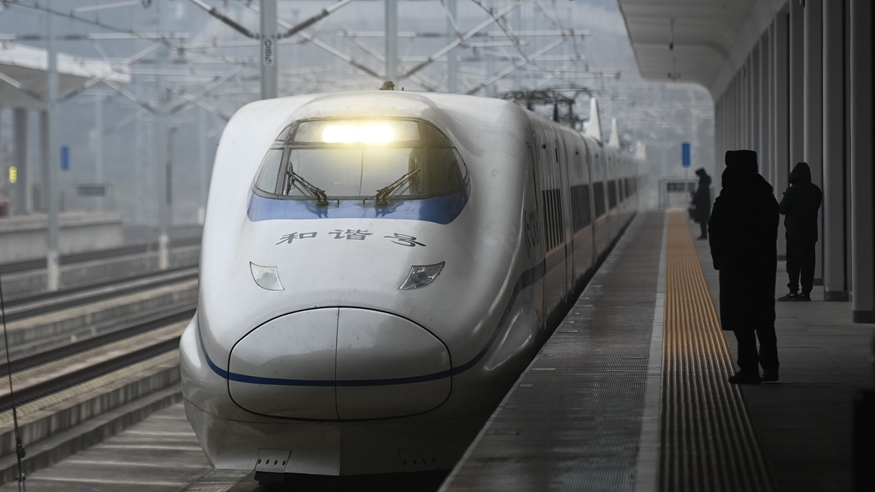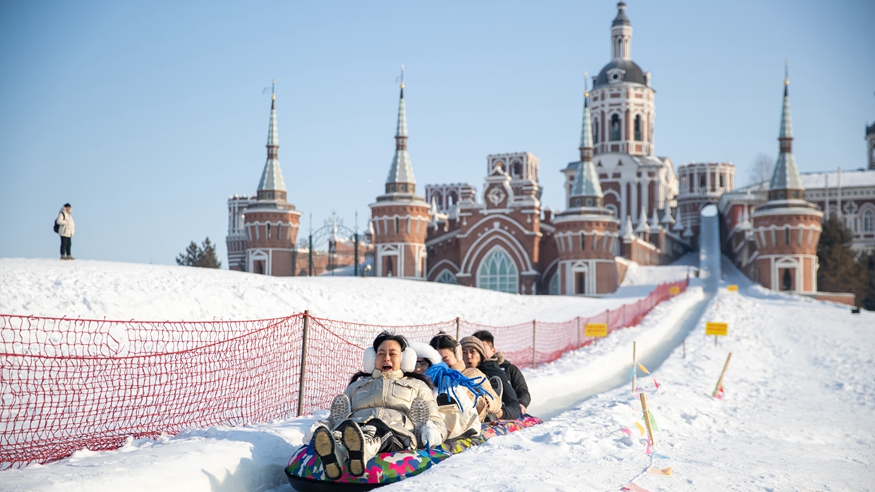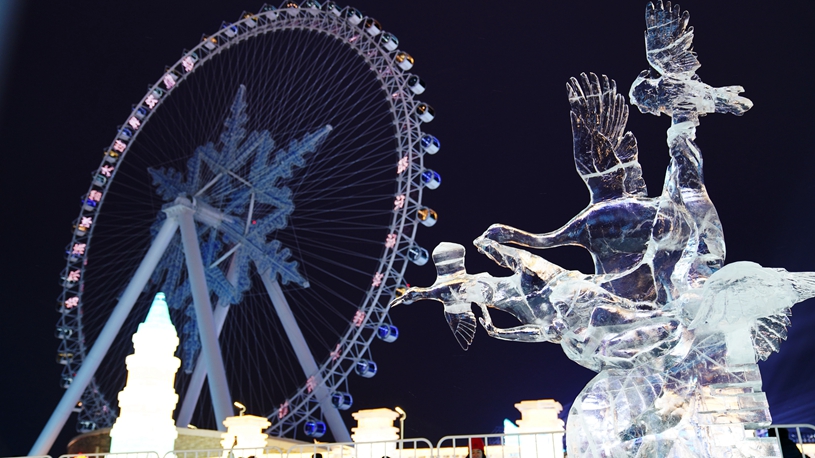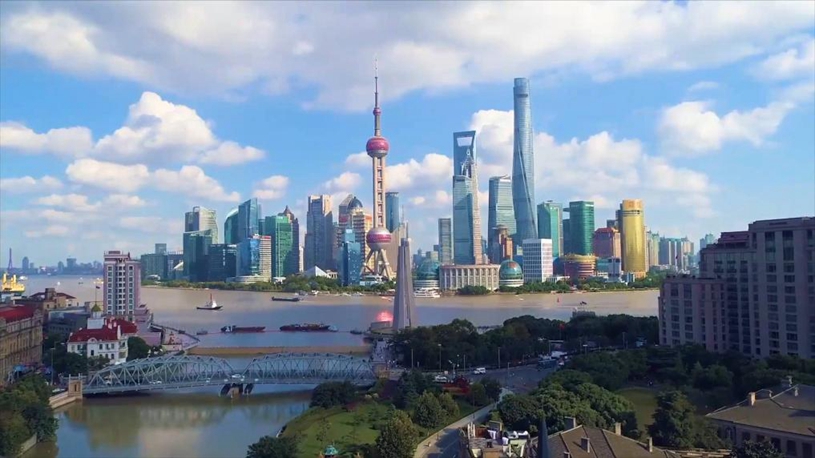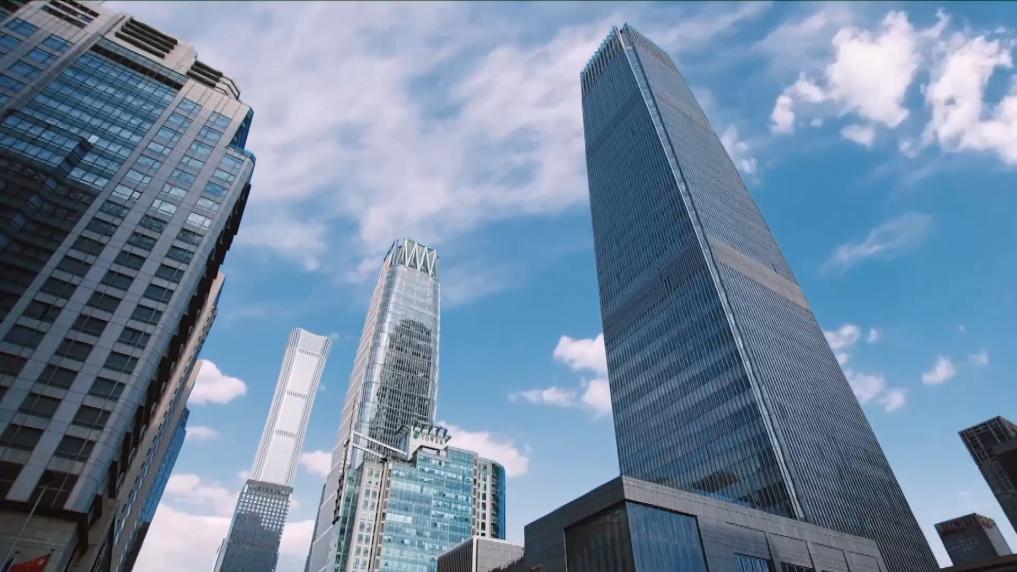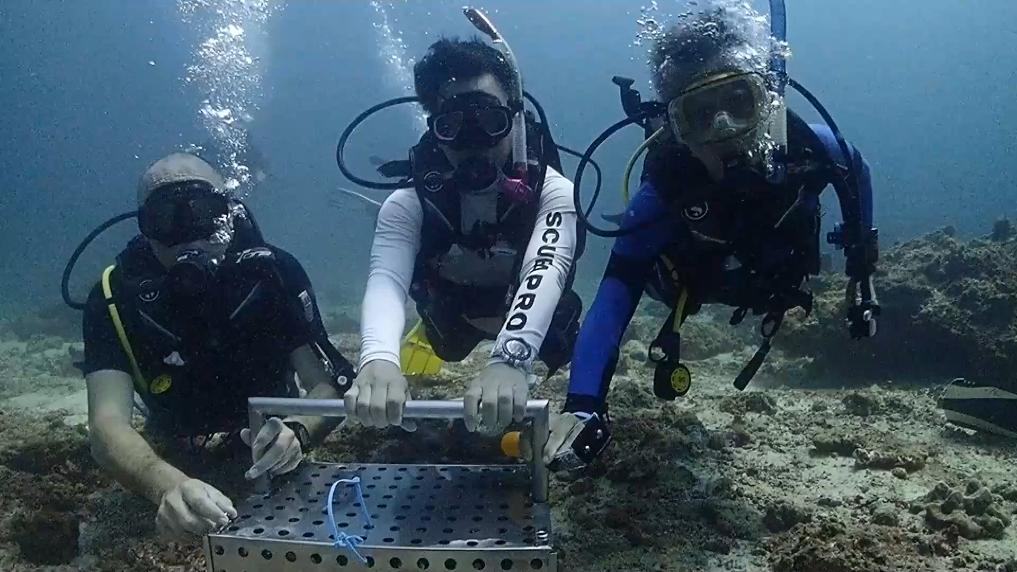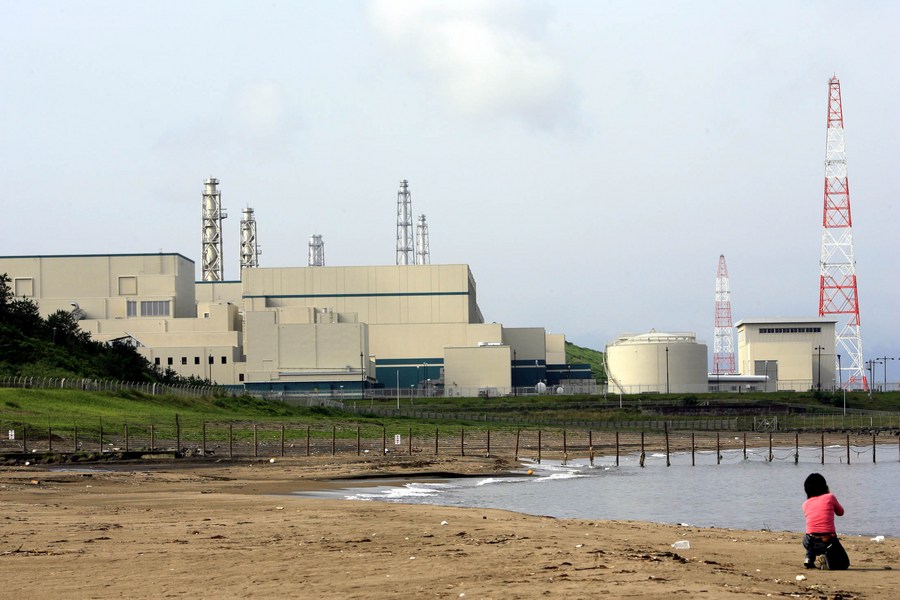
A photographer takes photos at the Tokyo Electric Power Co.'s Kashiwazaki-Kariwa nuclear power plant in the quake-hit coastal city of Kashiwazaki, July 18, 2007. (Xinhua/Ren Zhenglai)
While the Fukushima nuclear accident serves as a painful reminder, residents near nuclear power plants have expressed concern over the safety of nuclear energy.
TOKYO, Jan. 9 (Xinhua) -- After a powerful 7.6-magnitude earthquake rocked central Japan on New Year's Day, concerns over nuclear safety are growing amid renewed anti-nuclear sentiment.
Incidents such as the overflow of cooling water from spent fuel pools and transformer anomalies have been reported at nuclear power plants in the prefectures of Ishikawa, Fukui, and Niigata along the Sea of Japan.
Although authorities claimed that "there are no abnormalities" at nuclear plants following the earthquake, Japan's nuclear safety is once again in the spotlight.
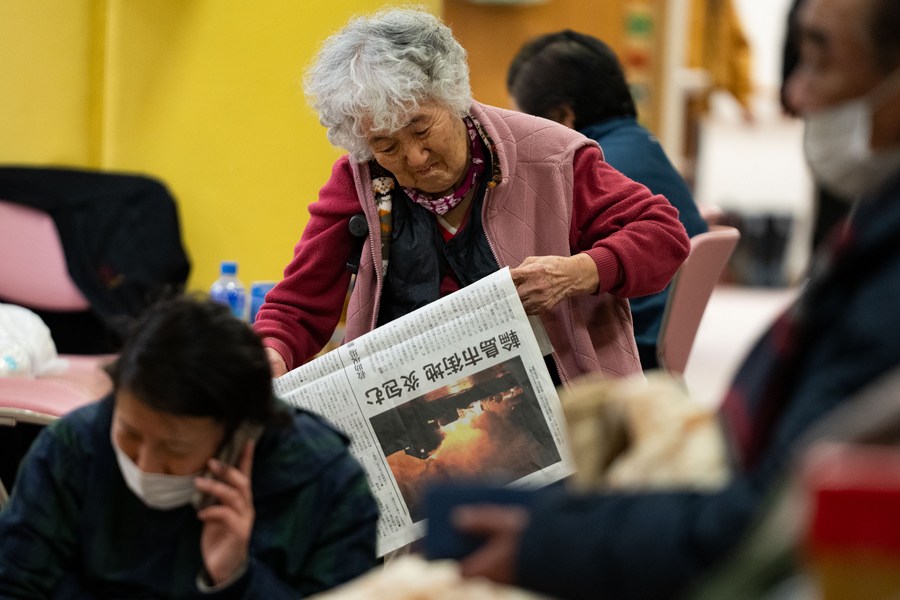
A woman reads about earthquake news at a temporary shelter in Wajima, Ishikawa prefecture, Japan, Jan. 3, 2024. (Xinhua/Zhang Xiaoyu)
DISTURBING CHANGES
Following the 2024 Noto Peninsula Earthquake, Japan's Shika and the Kashiwazaki-Kariwa nuclear power plants experienced spillovers of cooling water from spent fuel pools, according to local media reports.
At the Shika power plant, the spillovers of cooling water led to an emergency shutdown of cooling pumps. Hokuriku Electric Power Company, the operator of the Shika plant, initially said that there were no changes to water intake in the nuclear power plant, but later acknowledged that there is a three-meter rise in water level as a result of absorbing seawater used for cooling the plant equipment.
Local media reported that a flood barrier on the seaside of the plant showed a slight inclination after the earthquake. There were also "explosion sounds and a burning smell" near the transformer for Unit 2 at the plant, which the power company explained as the automatic fire suppression system in action.
The company earlier said that two external power supply transformers at the Shika plant were damaged. Specifically, one transformer was reported to have leaked approximately 3,500 liters of oil, rendering a portion of the external power supply system inoperable.
During a Friday press conference, the company admitted that the actual oil leakage amounted to as much as 19,800 liters, and the timeline for repairing the external power supply system remains uncertain.
Fearing aftershocks and tsunamis, the government is racing to verify the operation of nuclear power plants along the coast of the Sea of Japan. Japan's Nuclear Regulation Authority earlier confirmed there were no abnormalities reported at nuclear power plants along the Sea of Japan, and no rises in radiation levels were detected at the monitoring posts in the region.
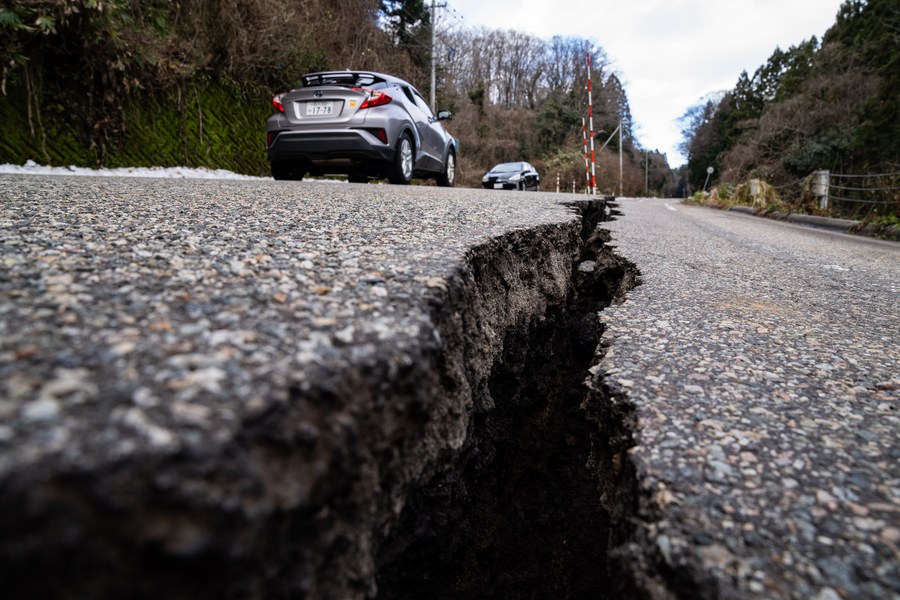
This photo taken on Jan. 2, 2024 shows a road damaged by earthquakes in Hakui, Ishikawa prefecture, Japan. (Xinhua/Zhang Xiaoyu)
SLOPPY WORK PRACTICES
Japanese newspaper Tokyo Shimbun reported that after the earthquake, 15 monitoring posts measuring radiation levels around the Shika nuclear plant were unable to function. The inability to quickly obtain data used to determine whether residents need to evacuate has exposed the country's difficulties in dealing with nuclear disasters.
Before building the Shika plant, Hokuriku Electric originally planned to build a nuclear power plant in Takaya, a town adjacent to the epicenter of the latest earthquake, but gave up due to opposition from local residents.
If a nuclear plant had been built in Takaya, the consequences would have been disastrous, said the newspaper.
The Shika plant has been surrounded by controversy. In 1991, a reactor experienced a critical state when three control rods fell off -- an incident that Hokuriku Electric kept concealed until 2007.
Chihiro Kamisawa, a staff researcher at the Citizens' Nuclear Information Center, a Tokyo-based anti-nuclear nonprofit organization, said the power supply from the Shika nuclear plant is very fragile, considering the possibility of aftershocks and other situations.
"Hokuriku Electric should admit that the nuclear power plant was built in an inappropriate location and scrap the reactors," Kamisawa said.
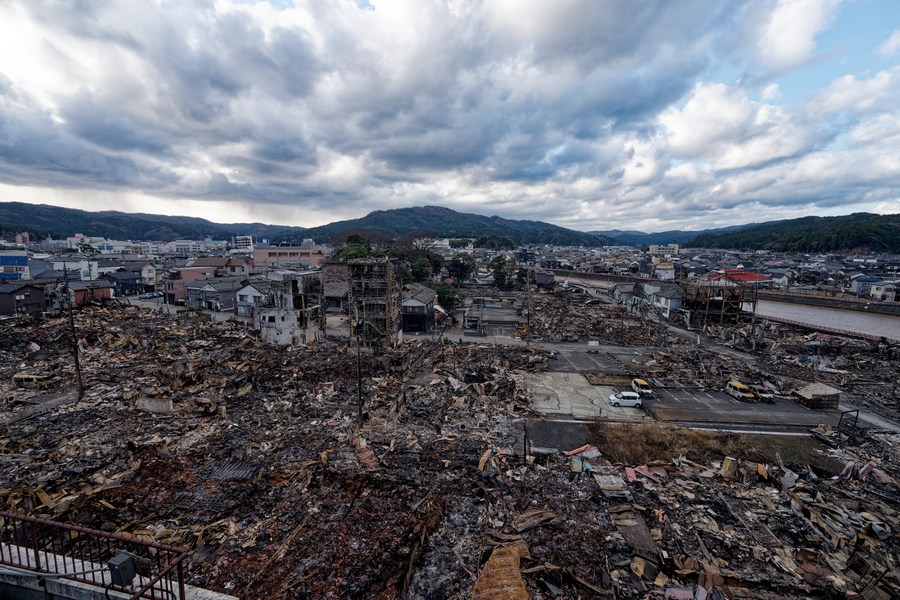
This photo taken on Jan. 4, 2024 shows the Wajima Morning Market which has been burned down by a large blaze following a series of earthquakes in Wajima city, Ishikawa prefecture, Japan. (Xinhua/Zhang Xiaoyu)
FEAR OF ANOTHER CATASTROPHE
While the Fukushima nuclear accident serves as a painful reminder, residents near nuclear power plants have expressed concern over the safety of nuclear energy.
"There was no news after the earthquake. I thought there might be a sudden accident like the Great East Japan Earthquake, and I was very worried," Hiroko Shida, a resident of Nanao City which is 10 km away from the Shika nuclear plant, told media.
"For a country like Japan that is prone to earthquakes, is the national policy of promoting nuclear power correct? I hope the government will revise its nuclear power policy so that everyone will no longer feel uneasy," Shida said.
Many Japanese netizens have also voiced concerns regarding nuclear power plants along the Sea of Japan and called for the decommissioning of the plants.
"There is a nuclear power plant still operating in Fukui prefecture near the disaster-stricken area. There is a possibility of a massive aftershock there. Is it safe?" they asked. "Every nuclear power plant is close to the sea, and if it is flooded by a tsunami and loses power, it will follow the fate of the Fukushima plant."■

